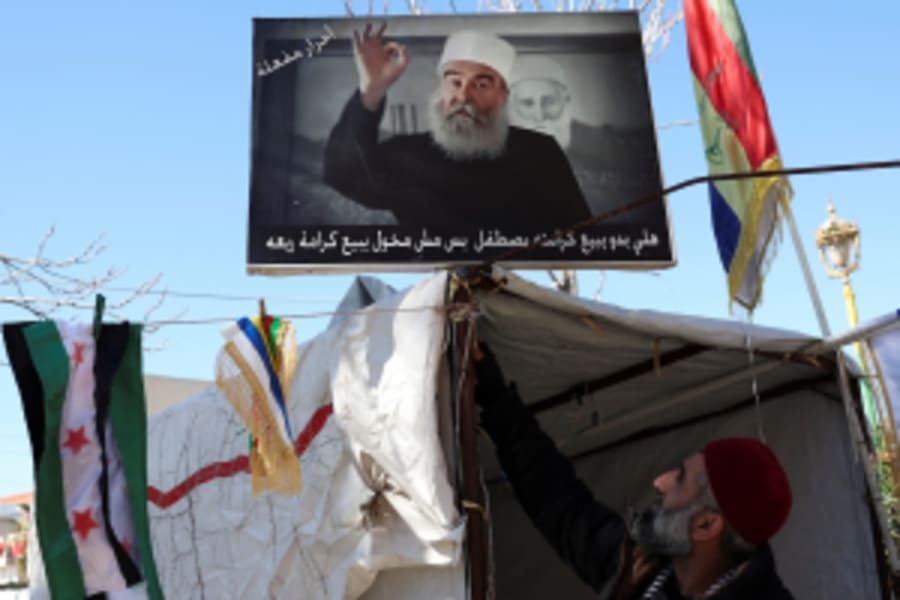The heroic story of retired IDF General Noam Tibon who rescued his son’s family on Oct 7 | THE ROSENBERG REPORT 3rd SEASON PREMIERE
One year after the horrific Hamas invasion, Tibon and his journalist son Amir return to Kibbutz Nahal Oz for a deeply moving conversation with Joel Rosenberg

ALL ISRAEL NEWS Editor-in-Chief Joel Rosenberg launched the third season of his program THE ROSENBERG REPORT on TBN this week with a powerful season premiere marking the first anniversary of the Oct. 7 Hamas massacre.
Rosenberg and his team traveled to Kibbutz Nahal Oz in southern Israel for an exclusive hour-long interview with the heroes behind one of the most powerful rescue stories this dreadful day has produced.
It’s the story of a grandfather, retired IDF Maj.-Gen. Noam Tibon (61), who was on a mission to save his son, Haaretz journalist Amir Tibon, and his family, who were hiding in the safety shelter of their home for 10 hours during the invasion of Hamas terrorists on the morning of Oct. 7, 2023.
Tibon recently published a new book about his family’s experience that fateful day entitled, "The Gates of Gaza."
“It's the single best book that I've read all year,” Rosenberg said.
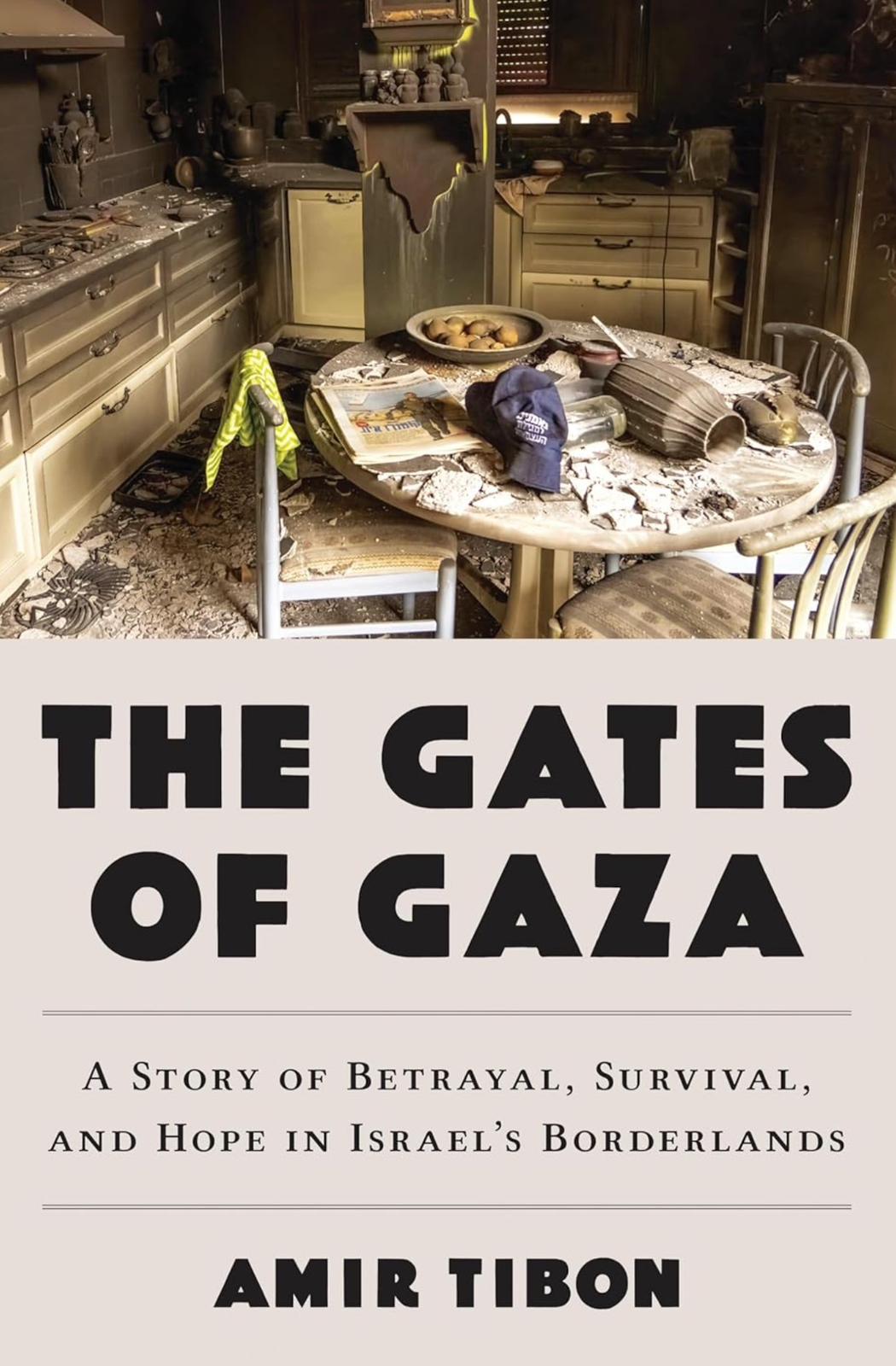
Rosenberg had interviewed Amir in November of last year but now, for the first time, he was joined by his father in front of the cameras to recount their chilling – yet successful – story of survival on an American TV network.
“This is my home,” Amir told Rosenberg. “It's also painful because this house is surrounded by the disaster of October 7.”
Despite the trauma, Amir explained that he gets excited whenever he visits the kibbutz. His community has been evacuated for an entire year.
“It's difficult to be out of home for such a long period… to be refugees in our own country,” he said.
“My wife Miri and my two young girls, they are heroes. And they've been doing relatively well considering everything that's happening,” he added.
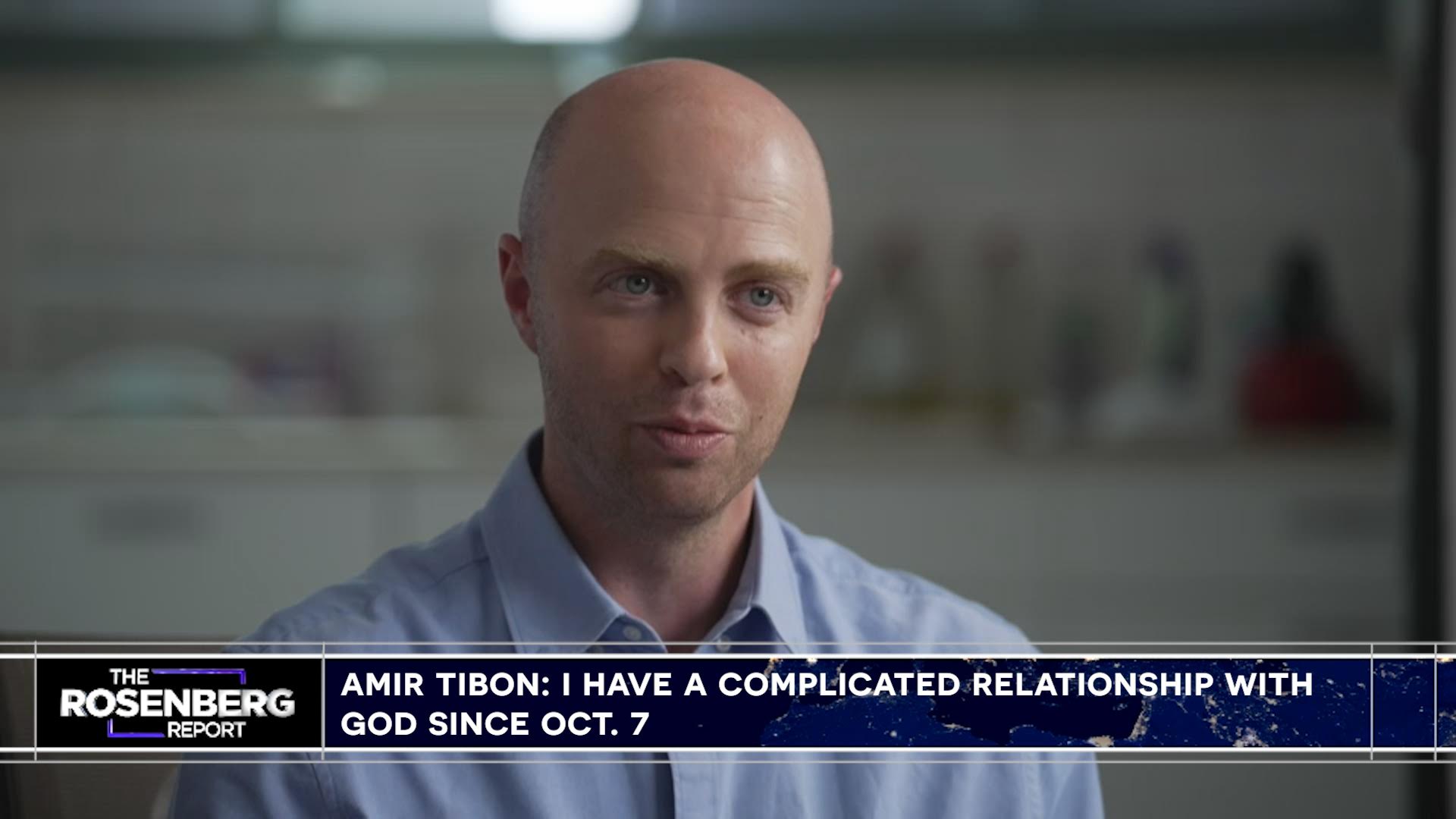
The Nahal Oz community was supposed to celebrate 70 years of the founding of the Kibbutz on the border with Gaza on Oct. 7. Instead, they lost 15 members on that day. Seven others were kidnapped into Gaza. Five of them have returned to Israel, but two are still hostages one year later – Tzachi Idan and Omri Miran - Amir’s good friends.
In the early morning of Oct. 7, Amir’s father Noam, was enjoying a swim in the Mediterranean. When the sirens went off in central Israel, warning of a rocket or missile attack, the former IDF general realized something wasn’t normal.
“Only at about 7:15 in the morning, when I entered my vehicle and I opened my cellphone and I got the WhatsApp from Amir, I understood what's going on here, because they said there are terrorist inside the neighborhood,” Noam recounted.
He called Amir for the fifth time that morning.
“It was a very straightforward talk,” he explained. “No panic on his side and no panic on my side.”
He told his son to lock all doors and windows and get inside the safety room.
“I'm sending the military,” he then promised them.
Noam Tibon served in the IDF for 35 years, beginning as a soldier in a special forces unit. He rose through the ranks to become a senior commander of the 202nd Paratroopers Battalion, the Nahal Brigade, and the West Bank Division. Specializing in combat operations and counterterrorism, his final role was securing Israel’s northern border with Lebanon as the commander of the Northern Formation.
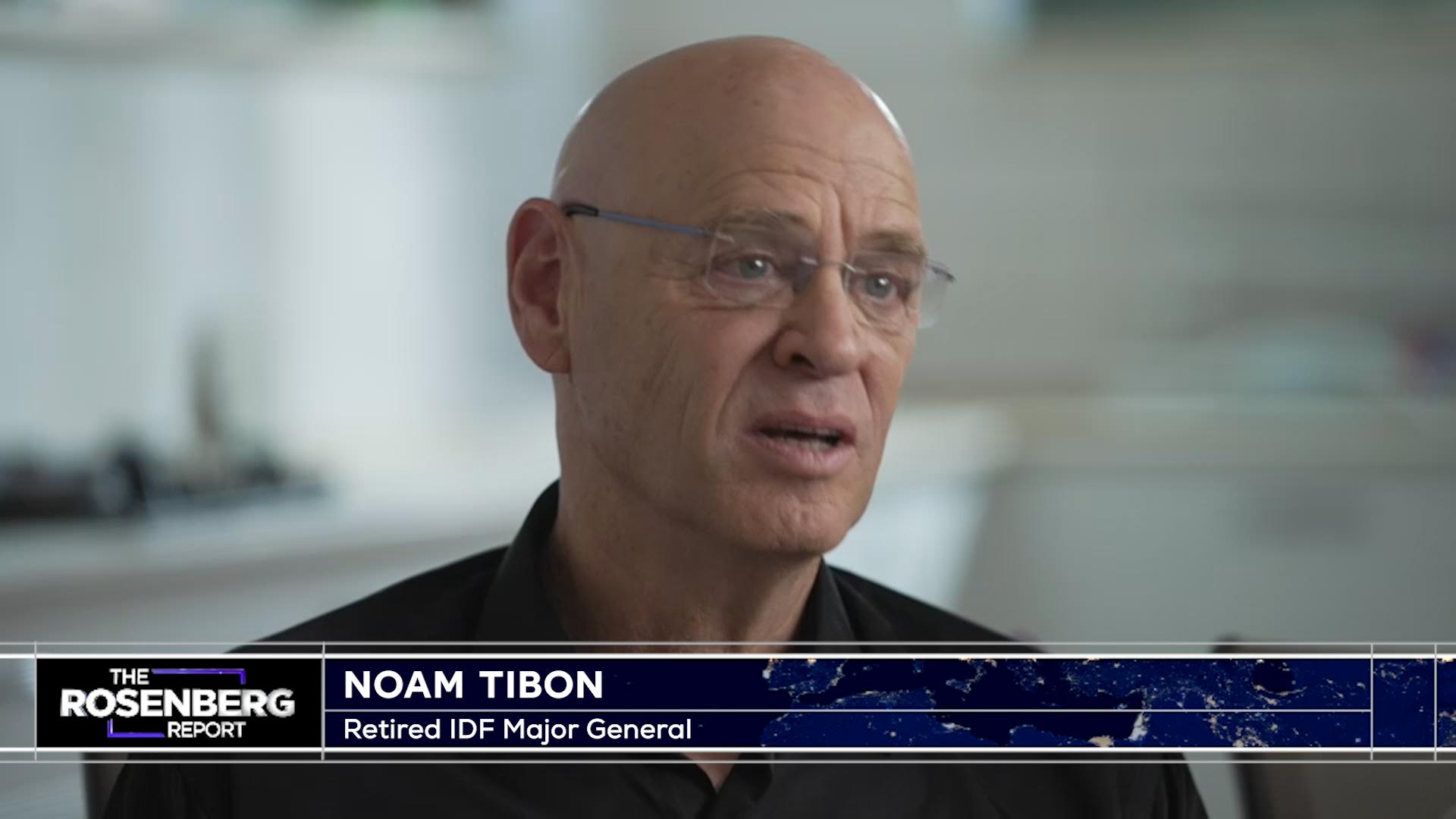
At 7:22 a.m., Tibon sent a short text message to IDF Chief of Staff Herzi Halevi, telling him there were terrorists inside Kibbutz Nahal Oz.
“We know. We sent troops,” read the message that he received back.
Even though he trusted the military, given his vast experience in the ranks of the IDF, and had direct contact with top generals – Tibon decided to trust his gut.
“Something in my heart told me this is totally wrong. You have to go there,” he said.
His wife, Gali, insisted on joining him. She wisely predicted: “You will need both hands.”
They began their journey from Tel Aviv to the south, as Amir and his wife Mira were doing their best to keep their two young daughters – Galia and Carmel, both under the age of 4 – calm inside the saferoom.
“They just woke up from the gunfire. They're in their beds. The room is completely dark because the electricity fell down and it's a Saturday morning and they want to go out and play. They want to go out and play, have something to eat, go to the bathroom,” Amir said. “And we have to tell them that we're very sorry, but we can't do any of those things right now. On top of that, they have to remain completely quiet because there are very dangerous noises. And if we make a sound, something bad can happen and we have to keep them calm because if we scare them too much, their instinct will be to start crying.”
Luckily, his daughters fell asleep.
At 7:30 a.m., Noam received another message from Amir, saying he thinks “there is terrorist inside the house.”
“It's one wall or one door distance between them and my family,” Noam thought. “And they came to kill and slaughter.”
At that point, both Amir and Noam, who was making his to him, were not aware of the big picture unfolding in various scenes. Amir thought this was an “isolated incident” with 5 or maybe 6 terrorists who infiltrated his Kibbutz from Gaza. Noam was solely focused on sending forces to help rescue his family. They also tried not to communicate too much between them in order to save the phone’s battery.
Soon enough, they gradually began to realize the grim situation.
Noam and his wife encountered a police shootout with terrorists along the way and decided to go off the beaten path.
“My mind started to think about it and how to cross the train station there, the train, the tracks, because you have to cross the river… and then suddenly, a young couple rushed into the road… and immediately we understood, we need to rescue them,” described the grandfather on a mission.
The shaken couple had managed to escape the Nova Music Festival – where nearly 400 people were eventually killed and dozens more were kidnapped into Gaza.
It was the first time – but not the last – that Noam faced a real dilemma: Should he turn back to take the traumatized couple to safety or remain focused on the mission of saving his family as soon as possible?
Noam and Gali turned their car around and drove the couple to a village near the southern city of Ashkelon. When they dropped them, he said, “Call your family to come and take you because nothing is functioning.”
Armed with his pistol on the long way south, Noam wasn’t following the news or social media at this point. He realized how bad things were just from reading the scenery around him.
“I didn't see even one soldier, so I understood that something is totally wrong here. Nobody is answering me. Terrorists inside Israel, people slaughtered… I was not aware how big it is, but I understood this is something that I never thought before,” Noam told Rosenberg.
Around the same time, Amir and his wife learned what was happening from their community’s WhatsApp group texts. They also listened to the sounds outside.
“For the first two hours, there was a lot of gunfire,” Amir recounted. He later learned it was the local security team of the kibbutz, heroically engaging with the terrorists.
“Then we start hearing over the next three hours, a lot of Arabic being spoken,” he continued.
“The first wave that came in - these were terrorists armed, coming to kill,” he explained to Joel. “The second and third wave - a lot of it was civilians from Gaza who saw that the border was open and just came here and started stealing everything they could. Some of them stole televisions and some of them stole cars and some of them stole an occasional jeep with them back into Gaza. And we are hearing that.”

At about 10 a.m., Tibon and his wife arrived at the Negev Junction. There, the former IDF general saw something that he had never seen before – not even during his many years of military service through wars and operations.
“The whole junction was full of cars upside down, burning on the ditches, and it was all full of bodies. Then suddenly you saw motorcycles from Gaza and things which I never saw in my lifetime,” Noam said.
They continued to drive south through the bodies, determined to get to their family – their granddaughters – and save them.
After spending more than three hours together in the car, Tibon's mission was about to be realized. He joined a small team of elite police forces and convinced one officer named Avi to take him to his son’s kibbutz.
Amir’s mother remained alone in a bomb shelter on the road in the middle of what seemed like an apocalypse. She was later joined there by Noam’s good friend, retired IDF General Israel Ziv (66), who also drove south independently seeking to help people in bomb shelters along the way.
Meanwhile in Nahal Oz, Amir and his wife held “very difficult conversations” while their daughters slept.
“We talked about the fact that this could be it… You know, we could all die in this room,” he told Rosenberg. “The kibbutz WhatsApp now is filled with horror stories… everybody crying for help and everybody asking for the military.”
They started composing messages to their families, in case they wouldn’t make it out alive. But in his heart, Amir still had hope that his father Noam would eventually arrive.
Not far away from the kibbutz, Noam and the officer who was with him came across a battle between a Hamas cell and soldiers from the IDF Paratroopers’ commando unit, Maglan. Following his instincts, Noam grabbed an M-16 rifle from a soldier who fell during the firefight and shot two terrorists who were approaching from his side. Another Israeli soldier who fought alongside them was injured.
“Extraordinary individuals. We lost so many future leaders of the IDF,” Tibon told Rosenberg at a makeshift memorial at the site of the deadly firefight.
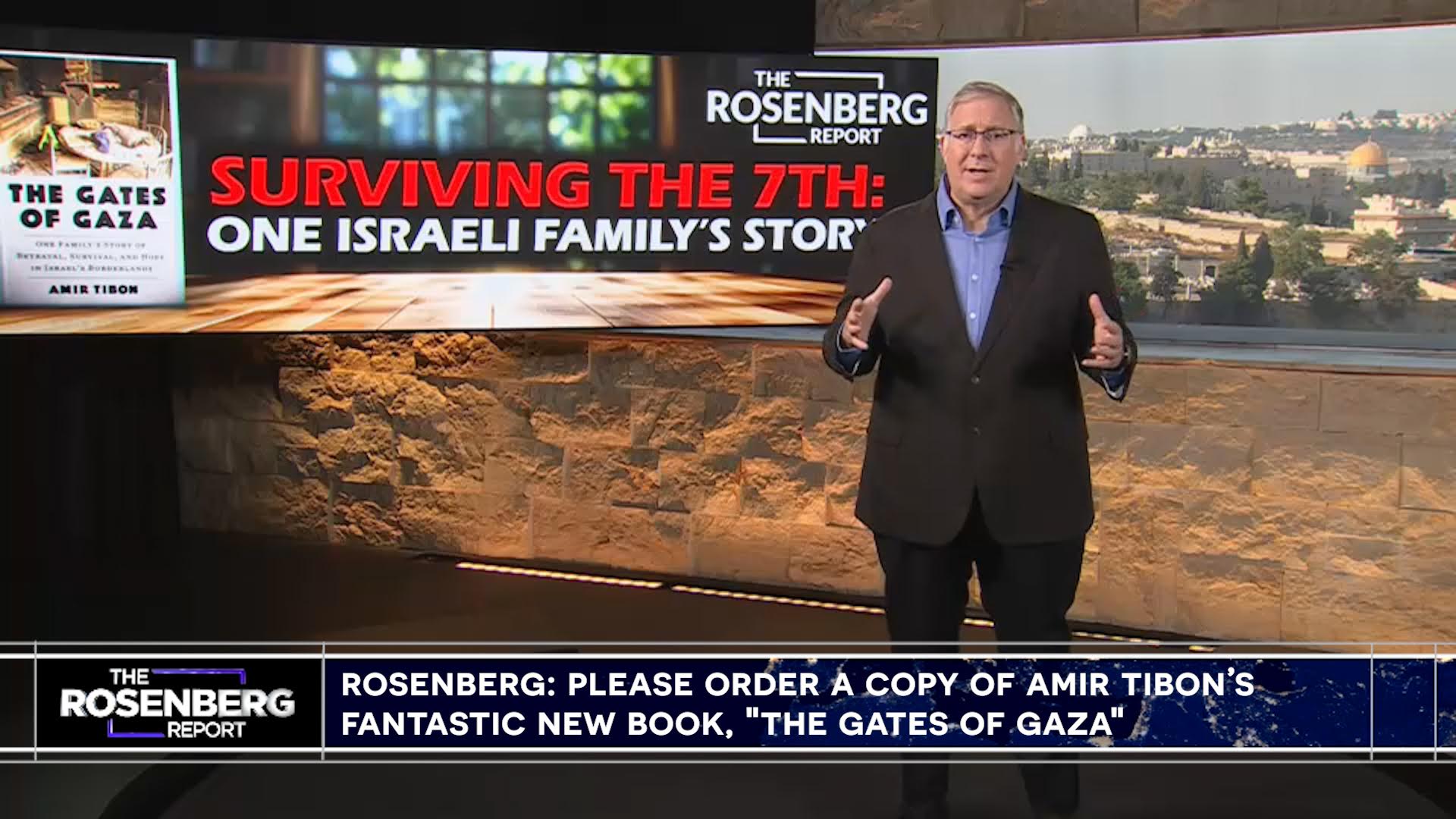
Noam then drove the wounded soldier back to his wife, Gali, who made the wise decision to bring him to a nearby ambulance instead of a more distant hospital – and in doing so, likely saved his life.
Retired Gen. Ziv, Noam’s good friend and former commander, remained with him to Nahal Oz. The two men were the first military force that arrived at the kibbutz on Oct.7.
Noam joined those from the kibbutz’s neighborhood security squad, who were exhausted after long hours of battles. Together with IDF soldiers who arrived later, they began clearing one house after another of terrorists.
They opened the doors of the safety shelters and rooms, where kibbutz members had been hiding throughout the day.
“When a bomb shelter’s door was open – it meant that people inside were either dead or missing,” he explained.
Then, they reached his son’s house.
“I told the soldier, 'Listen, this is my son's house. I want to go there first,'” Noam said. “I went to the window. I knocked on the window and said, ‘Daddy is here.’”
Then Noam went inside the house and hugged Amir.
Yet, they didn’t have time to spend on emotions because they were both still on a mission.
“We killed more than 30 terrorists and at the end of the day, around midnight, we took out of the kibbutz more than 400 people alive,” Noam said. “I'm so proud and so thankful to my unit.”
THE ROSENBERG REPORT airs Thursday nights at 9 p.m. EST and Saturday nights at 9:30 p.m. EST – on the Trinity Broadcasting Network (TBN), the most-watched Christian television network in the United States.

The All Israel News Staff is a team of journalists in Israel.









